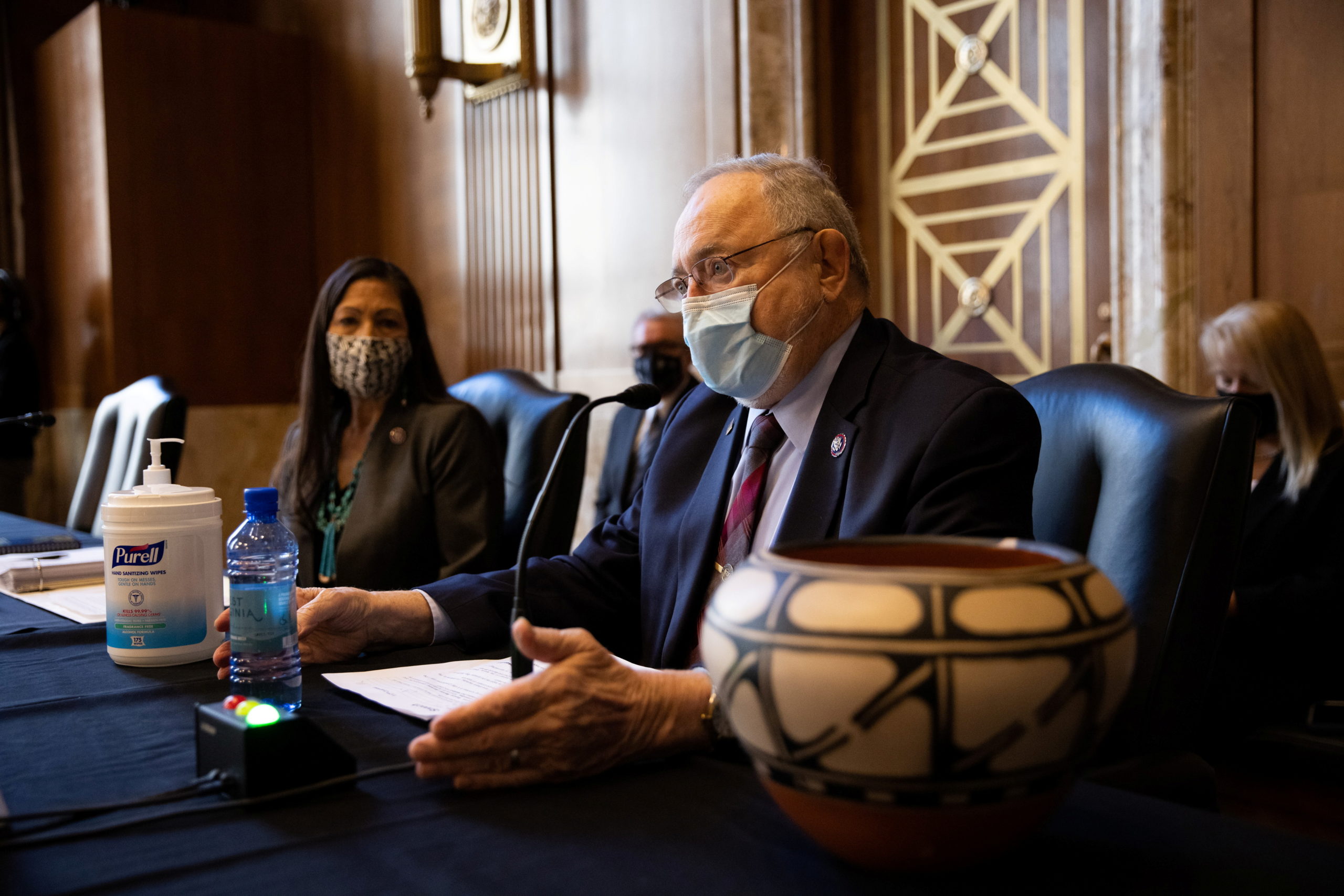Young’s Arctic legacy includes support for Alaska’s Indigenous people, refuge drilling
Young lived in Fort Yukon, an Alaska Native village on the Arctic Circle.

Don Young, who represented Alaska in Congress for most of its years since statehood, leaves a legacy that includes support for Alaska’s Indigenous people and a decades-long push to open the Arctic National Wildlife Refuge to oil and gas drilling.
Young, 88, died Friday while traveling by air from the Lower 48 to Alaska. He had been in the U.S. House of Representatives since 1973, when he won a special election to succeed the late Rep. Nick Begich, who died in a 1972 plane crash.
Young, a Republican who more often received attention for provocative — and sometimes offensive — statements than his policy positions, was nevertheless known for backing Alaska Native groups and initiatives.
In a statement, Anna Hoffman, co-chair of the Alaska Federation of Natives, said that Young was “staunch defender of Alaska Natives and rural Alaska, as well as our ways of life.”
Young’s ties to Indigenous issues were, in part, personal.
When he came to Alaska shortly after statehood, he wound up living in Fort Yukon, an Athabascan village situated along the Yukon River on the Arctic Circle. He worked as a schoolteacher, the captain of a riverboat supplying villages along the Yukon River, a trapper and a fisherman.
His advocacy for Alaska Natives included his support for capital spending in rural Alaska. Along with his Alaska colleague Lisa Murkowski, Young was an enthusiastic supporter of the bipartisan Infrastructure Investment and Jobs Act, even though he was criticized for that support by other Republicans.
President Joe Biden cited that record in a statement released Saturday about the late representative, who was the longest-serving Republican member of the U.S. House.
“There is no doubt that few legislators have left a greater mark on their state. Don’s legacy lives on in the infrastructure projects he delighted in steering across Alaska. In the opportunities he advanced for his constituents. In the enhanced protections for Native tribes he championed. His legacy will continue in the America he loved,” Biden’s statement said.
Young will lie in state in the Capitol, House Speaker Nancy Pelosi announced on Monday. In a statement, she touted Young’s bipartisan work.
“For five decades, he was an institution in the hallowed halls of Congress: a serious legislator always bringing people together to do the People’s work. The photographs of him with 10 presidents of both parties who signed his bills into law that proudly cover the walls of his Rayburn office are a testament to his longevity and his legislative mastery.”
Along with other leading Alaska politicians — including all the U.S. senators with whom he served – Young was an ardent supporter of oil development in the Arctic National Wildlife Refuge.
That position allied him with some Inupiat institutions, such as the Arctic Slope Regional Corp. In a statement issued after his death, ASRC officials lauded Young. “He was loved by many people on the North Slope, and he loved the people of the North Slope,” Oliver Leavitt, a former ASRC chairman, said in the statement.
But Young’s fervent support of ANWR oil development set up clashes with the Gwich’in Athabascan people — even though his wife of more than four decades, Lu, was herself Gwich’in and from Fort Yukon, home to one of the tribal governments that have been active in the campaign against refuge oil drilling.
Young’s most recent ANWR-related legislative effort was the introduction in 2021 of a bill called the “American Needs Worthwhile Resources Act,” which went by the acronym ANWR. That was in response to President Biden’s executive orders placing temporary moratoria on oil and gas activities on federal lands, including the Arctic refuge.
“It is not surprising, though no less disappointing, that President Biden is continuing Obama-era attacks against Alaska. By placing a moratorium on energy development in ANWR, President Biden has surrendered to his party’s environmental extremists,” Young said in a news release then.
Young — who was known to be bombastic — frequently referred to opponents of ANWR drilling as extremists. In the 1990s, after the Republicans took control of Congress and Young became chairman of the House Natural Resources Committee, he mounted a brief campaign to rename the refuge’s coastal plain the “Arctic Oil Reserve.”
After nearly five decades in the U.S. House, Young was running for re-election when he died. In a video address to the 2021 Alaska Federation of Natives convention in December, Young touted both his ties to the state’s Indigenous people and his long experience in Congress.
“I’ve never let you down. And I’ll continue to do that because I listen to you and what you really want,” he said in his video address to the online convention.
And he pushed back against arguments that he was too old to continue being effective. “I’m an elder. I’ve listened to your elders; sometimes you come out ahead,” he said in his address. “You don’t want a young puppy in this job right now.”